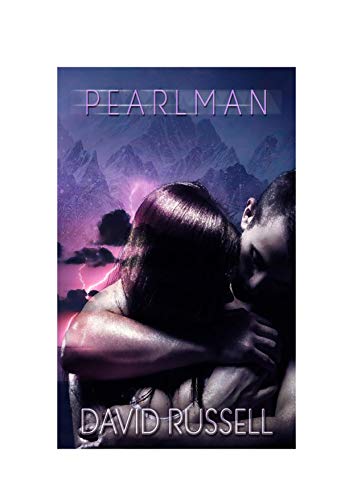 Pearlman: Seduction and Enlightenment
Pearlman: Seduction and Enlightenment Science Fiction/Paranormal Romance/NOVELLA
Independently Published
August 17, 2018
88

This was inspired by a passage in the Spanish epic poem La Araucana, which I have translated. In the original story, a Spanish soldier, after a battle, is accosted by an Indian woman who asks him to lead her to her husband's body, to pay her last respects. In the original story, she disappears. In Pearlman the hero is contemporary, but he does time and space travel to those legendary times, and the woman turns out to be Auchimalgen, the Araucanian Moon Goddess. She seduces and enlightens him. There is a backdrop of Chile, with its incredibly volatile ecosphere and long history of protracted conflict. This story combines romance with sci-fi and time travel.

Reviewed By S.C. Principale
Member of the Paranormal Romance Guild Review Team
Pearlman by David Russell has an incredible premise and a vocabulary that will make a logophile drool. An intellectual in his prime manages to project his thoughts backward and forward into time and space in a quest to alleviate the complacency of his comfortable and successful life. A time-traveler who seeks adventure and finds romance with a Chilean goddess? Sign me up!
While Pearlman has a great concept, it’s told in an extremely difficult stream of consciousness style that jumps forward and backward through time and events. Though the events are connected, they are distorted and don’t flow smoothly. After the nameless male narrator arrives in one of his time jumps (his method of controlling time and space are never fully explained) he meets Fiton, the distiller of all magic who tells him he needs to be his vessel. The reasoning behind this is also only semi-clear. It’s because of this that our hero ends up meeting Auchimalgen, the moon goddess, who observes him in battle and understands his purpose and bravery. Symbolically, the white man and the indigenous goddess make love, indicating the wish for peace between their worlds and cultures. However, while there is love and sex, it’s stretching it to call it a romance or a love story.
Rich in imagery, mythology, and historical lore, Pearlman is a complex and interesting read. However, it’s difficult to wade through and feels as though it’s circling and repeating. While that may be intentional, it makes it a bit clunky, jumping from undersea vents, to quotes from Cornell research, to mental charioteering, to office buildings, to conquistadors, back to the arms of a moon goddess—either in the past or the present. Are we intrigued? Certainly. We’re also confused and losing the thread, which ultimately leads to an ambiguous ending and some beautiful poetry. If you like speculative fiction, you’ll enjoy this book, but if you enjoy a concrete plot and relatable characters, this book may be out of your comfort zone.
